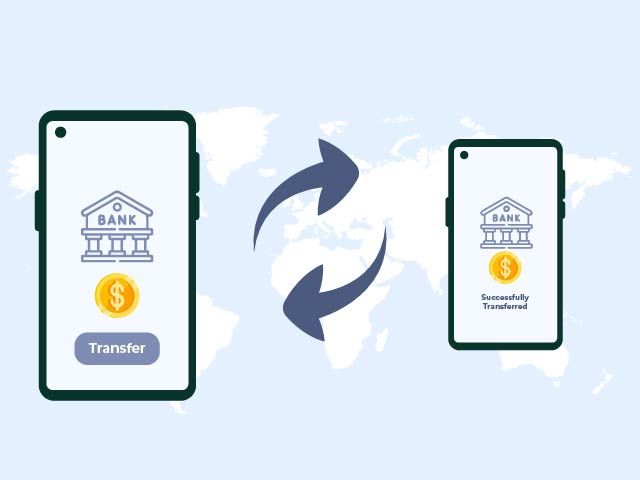The world of finance has undergone a revolutionary transformation with the emergence of blockchain technology. Initially designed to support cryptocurrencies like Bitcoin, blockchain has transcended its original purpose to become a game-changing solution for secure, transparent, and efficient money transfers. As globalization accelerates and cross-border transactions become increasingly common, blockchain’s role in streamlining financial processes has never been more critical.
One of the most compelling advantages of blockchain in money transfer is its ability to eliminate intermediaries. Traditional banking systems rely on a network of financial institutions to process transactions, often resulting in high fees and lengthy processing times. Blockchain, on the other hand, facilitates peer-to-peer transactions by utilizing decentralized ledgers, significantly reducing costs and delays.
Moreover, blockchain technology enhances transparency and trust in financial dealings. Every transaction is recorded on a tamper-proof ledger, ensuring that all parties have access to an immutable record of activity. This transparency not only mitigates the risk of fraud but also promotes accountability among participants, making blockchain an ideal solution for both individual and corporate users.
As the technology continues to evolve, its potential applications in the financial sector are expanding. From enabling micropayments to improving access to financial services in underserved regions, blockchain is set to redefine how money moves around the globe.
How Blockchain Enhances Security in Financial Transactions

In an era where cyber threats are becoming more sophisticated, ensuring the security of financial transactions is paramount. Blockchain’s unique architecture provides an unparalleled level of protection, making it a trusted choice for money transfer systems.
The decentralized nature of blockchain is one of its primary security features. Unlike traditional systems that store transaction data on a central server, blockchain distributes information across a network of nodes. This decentralized structure makes it nearly impossible for hackers to compromise the system, as altering one node would require simultaneous changes to all others in the network.
Additionally, blockchain employs advanced cryptographic techniques to secure transaction data. Each block in the chain contains a cryptographic hash of the previous block, a timestamp, and transaction data. This structure ensures that once a block is added to the chain, it cannot be altered without invalidating the entire chain.
Smart contracts, another feature of blockchain technology, further enhance security by automating transactions based on predefined conditions. These self-executing contracts reduce the need for human intervention, minimizing the potential for errors or malicious activities. By ensuring that transactions are carried out precisely as intended, smart contracts add an extra layer of trust to financial dealings.
Cost Efficiency and Speed: Blockchain’s Edge in Money Transfers

Traditional money transfer methods often involve high fees and lengthy processing times, especially for cross-border transactions. Blockchain technology addresses these challenges by offering a cost-effective and speedy alternative.
One of the key benefits of blockchain is its ability to reduce transaction fees. Conventional systems often require intermediaries like banks or payment processors to facilitate transfers, each charging a fee for their services. Blockchain eliminates the need for these middlemen, allowing users to send money directly to one another. This peer-to-peer model drastically lowers costs, making blockchain an attractive option for both individuals and businesses.
Speed is another critical advantage of blockchain in money transfers. Traditional methods can take several days to process, particularly for international transactions. Blockchain, however, enables near-instantaneous transfers by validating and recording transactions in real-time. This rapid processing is especially beneficial for businesses that need to manage cash flow efficiently or for individuals sending remittances to family members abroad.
Furthermore, blockchain’s ability to operate 24/7 ensures that transactions can be initiated and completed at any time, unlike traditional banking systems that are limited by business hours and holidays. This round-the-clock availability enhances convenience and accessibility, making blockchain a preferred choice for modern money transfer needs.
Fostering Financial Inclusion Through Blockchain Technology

One of the most transformative aspects of blockchain is its potential to promote financial inclusion. In many parts of the world, access to traditional banking services remains limited, leaving millions of people without reliable means to save, borrow, or transfer money. Blockchain technology has the power to bridge this gap by providing an accessible and affordable alternative.
Blockchain-based platforms enable individuals in underserved regions to participate in the global economy without requiring a traditional bank account. All that is needed is access to a smartphone and an internet connection, making it possible for people in remote areas to send and receive money securely. This capability is particularly impactful for migrant workers who rely on remittances to support their families.
In addition to improving access, blockchain can also reduce the cost of financial services. By eliminating intermediaries and streamlining processes, blockchain makes it more affordable for individuals and small businesses to engage in financial activities. This cost reduction can be a game-changer for entrepreneurs in developing countries, empowering them to grow their businesses and contribute to local economies.
Moreover, blockchain’s transparency and security features inspire confidence among users who may be wary of traditional financial institutions. By offering a reliable and user-friendly alternative, blockchain has the potential to bring millions of unbanked and underbanked individuals into the financial fold.
The Future of Blockchain in Money Transfer
Blockchain technology is reshaping the financial landscape, offering unprecedented benefits in terms of security, cost efficiency, and accessibility. As adoption continues to grow, its impact on money transfer systems is becoming increasingly evident, paving the way for a more inclusive and efficient global economy.
While challenges such as regulatory hurdles and scalability issues remain, ongoing advancements in technology and policy are likely to address these concerns. With its ability to revolutionize how money is transferred, blockchain is not just a technological innovation but a catalyst for economic empowerment and global connectivity.
In conclusion, the importance of blockchain in money transfer cannot be overstated. As we move towards a more interconnected world, embracing this transformative technology will be key to unlocking new opportunities and creating a more equitable financial system for all.

